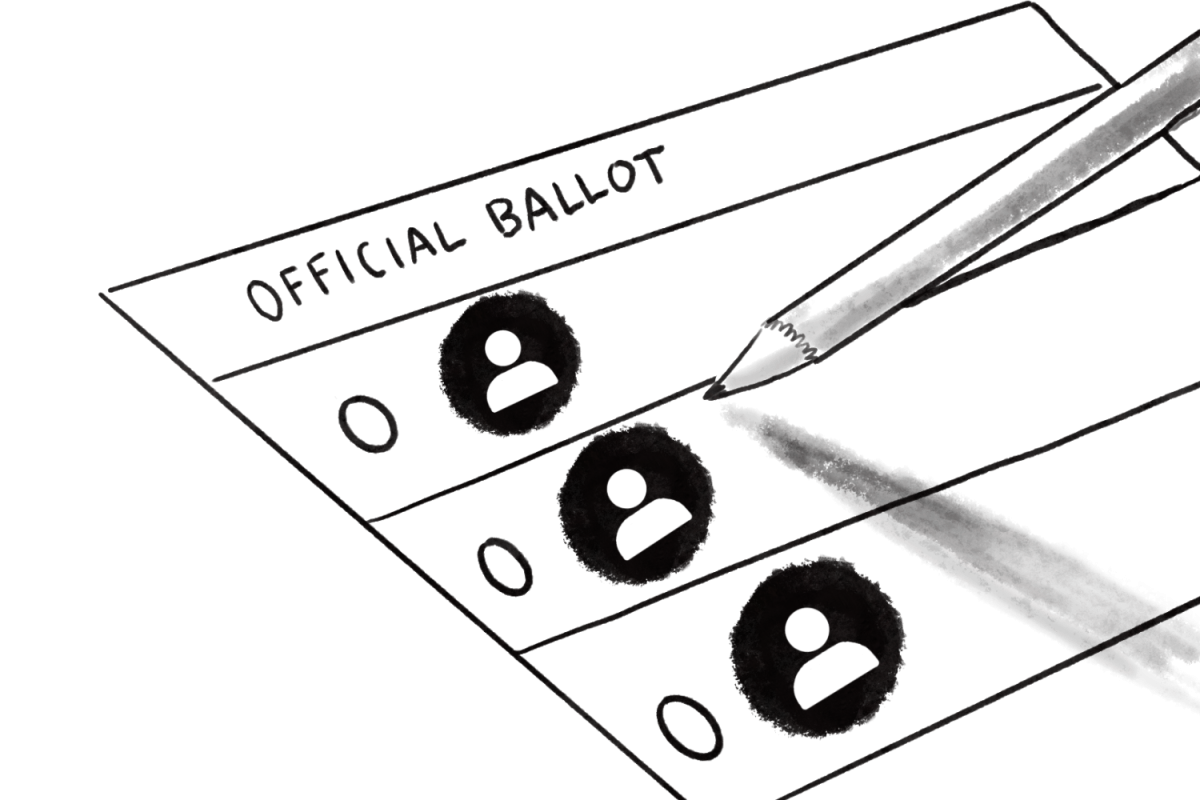
Sofia Segal
Last year, six names were drawn in a blind lottery to determine the ninth grade class cabinet members. To determine the class president, instead of writing and giving speeches, the candidates wrote responses to two questions: Why do you want to be on the class cabinet? What qualities do you possess that will make you an effective leader? Students were then sent a form listing the selected students’ anonymous responses to the two questions. The candidate whose responses garnered the most votes became class president.
This school year, the freshmen class continued to use this system, and the sophomore class adopted it as well. The anonymous election process aims to prevent elections from becoming popularity contests. Such a problem is certainly prevalent in schools with large student bodies where popular students are more well-known than other students. However, at a school like Poly with small grade size, this issue is less pervasive, as each student knows most, if not all, of their peers.
Many Poly students also recognize the importance of electing candidates based on qualification, not popularity. Freshman Aliya Zhou shared her objective approach to this year’s Associated Student Body (ASB) election: “Although there were candidates with whom I was more familiar with, I did my best to make sure my votes remained impartial and were cast only based on candidate speeches.”
Freshman Benjamin Lee also sought to maintain an unbiased stance and vote solely for the candidates’ ideas: “I voted for the precedent that will be set. The live election promises website and recall election bring up the stakes for what ASB presidents vouch or campaign for.”
The blind lottery/ anonymous election system was also implemented in an effort to create more representation for female-identifying students on the cabinet. This goal has been successful: more female-identifying students served on this year’s freshman and sophomore class cabinets, which were elected anonymously, than the junior and senior cabinets, which were elected traditionally.
While the anonymous election system certainly exposes the underrepresentation of female-identifying students on class cabinets determined by traditional elections, it fails to address the root of the problem. Poly needs to work on actually changing the attitudes that create underrepresentation in the first place. Otherwise, the biases that cause male-dominated student leadership will continue to prevail in elections for the Junior Class Cabinet, Senior Class Cabinet and ASB.
Several key changes can be made to improve the election system. To begin, the first step of the process, in which six students are chosen in a lottery, should be eliminated. The lottery contradicts one of principles the anonymous election system was founded upon: to make elections exclusively based on the candidates’ ideas. In order for this intention to be realized, everyone should have the opportunity for their written responses to be voted upon. The six people whose responses garner the most votes should become class cabinet members, with the most popular becoming class president.
Accountability was one of the central themes of this year’s ASB election. The lottery creates a lack of accountability for the ninth grade class cabinet. Typically, class officers are held responsible for their promises if they want to be re-elected the following year. While the Sophomore Class Cabinet is held accountable by traditional elections for the Junior Class Cabinet, the Freshman Class Cabinet has no incentive to fulfill their promises because they know they are as likely as anyone else to have their name drawn by chance from the lottery the next year.
To create accountability, a second change should be made. Students applying for the tenth grade class cabinet should write whether or not they served on the ninth grade class cabinet at the top of their written response. The extent to which this information will affect the selection of a response will undoubtedly differ based on the performance of the freshman class cabinet, but the information will help keep the ninth grade class cabinet accountable.
With the implementation of these changes, the anonymous election system will fulfill the objectives it aims to accomplish.